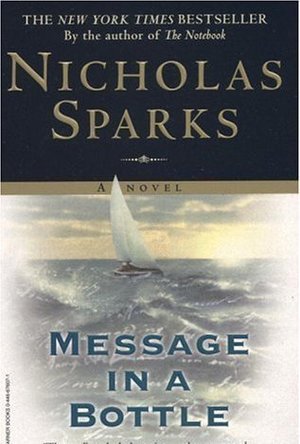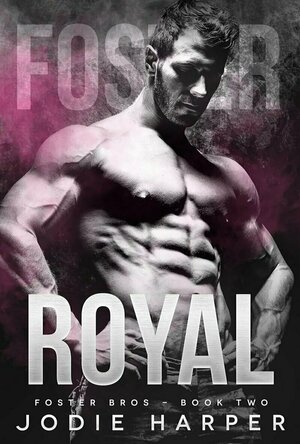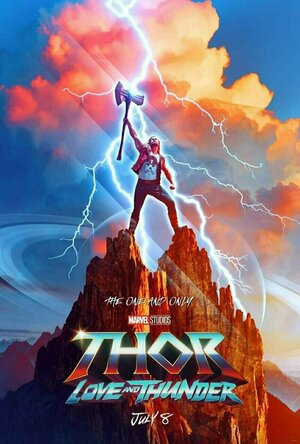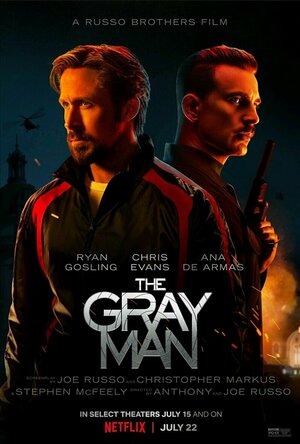
jigsaw puzzle hd real games
Games and Entertainment
App
Puzzles & Jigsaws is a beautiful jigsaw puzzle game. It is a highly addictive and relaxing pastime...

Visual Fractions Decimals and Percentages
Education
App
This math app is about visually exploring how percentages and decimals are just special kinds of...

Message in a Bottle
Book
Shimmering with suspense and emotional intensity - takes readers on a hunt for the truth about a man...

Rescued By The Alpha (Alaskan Wolf Alliance #1)
Book
M/M Shifter Mpreg Romance. When wishing for a new life, Elam finds out the hard way that he...
LeftSideCut (3776 KP) rated House of Gucci (2021) in Movies
Dec 7, 2021
The pacing is the main culprit. The first 45 minutes or so feel relatively breezy. The narrative unfolding is a fun and interesting one. The characters are all introduced well enough. But something happens around the midpoint that makes HoG feel like a slog, and it never quite recovers. For a story that has a very specific final destination, it manages to feel direction-less for quite a bit of the runtime. By the time the credits rolled, I felt like I'd run a marathon through thick mud.
The saving grace then, is the aforementioned cast. Lady Gaga turns in a magnificent performance, further cementing that she belongs in cinema. I've said before, and I'll say it again, I fucking love Adam Driver in pretty much everything he touches, and here is no different. The two leads together go a long way to ensure that HoG remains watchable. Al Pacino and Jeremy Irons could play these kind of roles in their sleep by now but their presence here is a welcome one. There's a specific scene somewhere within the first hour (I think) where it's just the two of them talking to eachother about their respective offspring, and it's like screen crack for me. Two masters at work. Then there's Jared Leto, who's portrayal of Paolo Gucci could definitely be deemed as excessive, full on Mario-esque accent and all, but he actually provides a huge dash of charisma in the duller moments so I can't complain too much.
All of the characters in this story are bad people to varying levels of degree, but they also command a certain level of sympathy, and to HoG's credit, this aspect is executed well, and 100% sold by it's great talent.
House of Gucci is nice to look at, boasts a top drawer ensemble cast, and has some genuine moments of excellence, but it's also overblown and overstuffed with hot air. I saw another review on here saying that it felt like it was made with the sole and transparent purpose of winning Oscars, and I can completely agree with that statement. Ridley Scott has made some of my absolute favourite films over the years, and while it does have its merits and is fun in parts, this one sadly feels a little self indulgent to really hit the mark.
Gareth von Kallenbach (980 KP) rated Creed 3 (2023) in Movies
Mar 5, 2023
wife (Tessa Thompson), and daughter (Mile Davis-Kent), and has retired
from boxing after defeating an old rival and ensuring his legacy.
Creed spends his time with his family and developing young fighters at his
gym and is prepping the current champion for his next big match against
Viktor Drago.
An unexpected figure from Creed’s past arrives in the form of Damian
Anderson (Jonathan Majors), a friend of Creed’s troubled youth has
just completed eighteen years in prison.
Damian was the current Golden Gloves champion when he was arrested and
believes he is due his title shot and Creed is the one who can make it
happen.
Creed tries to teach his friend that a person without a single professional fight does not get a magical title shot and with his large
the gap from the ring he would need to grind it out to get a shot.
When an incident occurs just before a scheduled fight and without any
established fighters available to make the date of the fight, Creed gives
his friend a shot and sees that his brutal style of boxing is not what he
would endorse.
Upon winning the title Damian lets it go to his head and gloats at how Creed
had the life he should have had and blames Creed for his past issues and
for not visiting him or staying in contact.
Naturally, this puts the two former friends on a path of no return with a
climatic boxing match being the solution.
“Creed III” does not have the benefit of Sylvester Stallone but you can
still get whips of his character’s influence on Creed and Jordan does a
very solid job Directing the film. He produces strong character moments
which help define the struggles and motivations that each of them faces and
the boxing sequences are very engaging and will have you cheering along.
Majors does a great job in what could have been a routine bad guy
performance. He gives Damian a drive and purpose but also shows the path
that Creed could easily have followed had fate not gone as it did and how
watching someone get everything you dreamed of while you are in prison can
turn even the best of a man cold and bitter.
The film satisfies from start to finish and the character moments and
boxing blend to make not only a very enjoyable film but one that shows
that there is plenty of life in the franchise.
4 stars out of 5
Gareth von Kallenbach (980 KP) rated Thor: Love and Thunder (2022) in Movies
Jul 5, 2022
Thor has been taking the spotlight in many of the missions and when multiple calls for help arise, Thor opts to go off on his own to address a particular call for help while the Guardians head on their way to help others.
It is learned that a being named Gorr (Christian Bale) has been killing Gods and Thor is eager to put a stop to him before he can do more damage. His mission soon puts him on a collision course with Gorr and The Mighty Thor (Natalie Portman) who being his ex and wielding his former weapon causes more than a few funny and awkward moments.
In a race to save captured children, rally the gods, and defeat Gorr, Thor, and Jane along with Korr (Taika Waititi) and Valkyrie (Tessa Thompson), embark on an epic adventure in a race against time.
While audiences have come to expect Marvel films to be epic cinematic events, this film is less on the over-the-top action sequences in favor of establishing new circumstances and challenges for the characters going forward.
While there are indeed action sequences and plenty of VFX, it does not have the action or intensity of several of the past films. What it does offer is a good mix of action and humor with enjoyable characters old and new and establishes scenarios for the MCU going forward.
Bale is very good as Gorr and you understand his motivations clearly as while evil, he has a degree of sympathy towards his character which makes his creepy performance all the more compelling.
The cast works very well with one another and there are two scenes in the credits which open up all kinds of possibilities for the future as we are told Thor will return before the credits even begin to roll.
The film also has considerable music and I joked to myself that Guns and Roses are going to be getting a big check due to their music being used frequently during the film as well as that of other artists which helps make the film an enjoyable outing from start to finish which should delight fans as we wait to see for the next cinematic offering from Marvel.
4 stars out of 5
BankofMarquis (1832 KP) rated The Gray Man (2022) in Movies
Aug 6, 2022
Such is the case with the new Ryan Gosling/Chris Evans action flick THE GRAY MAN. It is reminiscent of the MISSION IMPOSSIBLE, BOURNE and JOHN WICK films - and is very enjoyable - but I like the other movies better.
Directed by THE RUSSO BROTHERS (AVENGERS: ENDGAME) and written by Joe Russo, Christopher Markus and Stephen McFeely (writers of AVENGERS: ENDGAME), based on the book by Mark Greaney, THE GRAY MAN stars Gosling (LA LA LAND) as an enigmatic secret agent (is their any other kind) who is sent on a deadly mission that, perhaps isn’t what it seems on the surface (are there any other)?
This is a plot VERY reminiscent of the aforementioned MISSION IMPOSSIBLE, BOURNE and JOHN WICK films and when Chris Evans (CAPTAIN AMERICA, of course) and Ana de Armas (the latest James Bond flick, NO TIME TO DIE) show up as a few other mercenaries who might be on Gosling’s side - or might not - you can’t help but be reminded of those other flicks.
And that’s the trouble with THE GRAY MAN, it just can’t compete (at least in my memory) with those other films, mostly because it doesn’t do anything new. It is your basic “Super Spy” flick, very professionally done, but it isn’t anything you haven’t seen before.
The actors (Gosling, de Armas and Evans) are very good in their roles and have enigmatic (Gosling), out of control (Evans) and mysterious (de Armas) down very well and are ably assisted by wily veterans like Alfre Woodard (CROSS CREEK) and good ol’ Billy Bob Thornton (SLINGBLADE) who seem to having a good time going along for the ride.
And…it’s a fun ride…the action scenes are well done, set-up and choreographed professionally with just enough unique ways to take out a henchman or blow-up some sort of transport to make it interesting to watch, but…again…it’s really nothing new.
An entertaining 2 hours of film-making - and a film that will have a sequel on the way - there are worst ways to spend your time and with good (enough) action sequences and interesting and charismatic performers to watch - THE GRAY MAN suits its purpose…it entertains.
Letter Grade: B+
7 1/2 (out of 10) stars and you can take that to the Bank(ofMarquis)

Royal (Foster Bros #2)
Book
Royal When Royal wakes up in a hospital bed, confusion and then panic have him frantically...
Contemporary MM Romance
Gareth von Kallenbach (980 KP) rated Doctor Sleep (2019) in Movies
Nov 7, 2019
Dan is about to hit rock bottom when he encounters a man who has certainly suffered with his own demons in the past, who offers him a place to stay, a job, and an escape from the alcohol that held him in his own personal hell for several years. After eight years of sobriety he strikes up a psychic pen-pal friendship with a young girl named Abra Stone (Kyliegh Curran), who shares his powers. His wish to push his “shining” deep down inside him, and not let it come out is interrupted when Abra witnesses a murder of a young boy. Using her gift, she uncovers a group of beings so evil, that their desire for immortality requires them to snuff out the lives of those who share the same special gift as Dan and Abra. Dan and Abra must join forces, and let their lights shine, if they are to defeat this evil and save themselves and others like them in the process.
Doctor Sleep is the long-awaited sequel to The Shining released (on film at least) back in 1980. While the original film was lauded by most and reviled by some in the way that Stanley Kubrick brought the story to life, it serves as the backdrop to this sequel. Blending reshoots of the original film (using the current actors) as flash backs, it provides the necessary background to those who may have never had the opportunity to see the original, and visual reminders to those who have. While artistically the film doesn’t hold a shine to the original, it tells a far more consumable story, with less focus on the imagery and symbolism in each shot then Stanly Kubrick’s masterpiece.
The bond between Ewan McGregor and upcoming star Kyliegh Curran is not only believable but magical. The chemistry that the two share both in separate scenes and together show the tight bond they certainly must have felt on set. The movie is blessed with an entire cast of supporting characters, that bring the believability and professionalism to the big screen. Rebecca Ferguson, as our duos’ primary adversary Rose the Hat, provides an outstanding performance. Surrounded by her fellow shine-pires, Grandpa Flick (Carel Struycken), Snakebite Andi (Emily Alyn Lind) and Crow Daddy (Zahn McClarnon) to name just a few, the group reminds me of The Lost Boys in their cunning and hunger.
Doctor Sleep is not a scary movie, at least not when it’s put beside The Shining. While it has scary moments, this is a movie about putting aside your fear and challenging evil, regardless of the cost. Dan must put the past behind him and dig deep within himself to find his purpose and with this purpose will come a lot of loss, but acceptance at the same time. The movie begins a little slow and picks up midway through. While the battle against many of the shine-pires may feel a little hollow at first, it’s nothing to what will compare with the ultimate climax between good and evil.
Fans of the Stanley Kubrick film will see lots of familiar locations and costumes throughout the two-and-a-half-hour show. Even the re-created scenes share the same visual imagery and spectacle, just as if it was simply a re-master. I actually liked that they reshot the pivotal scenes and characters, while no one can perfectly mimic the master of Jack Nicholson, I felt that Henry Thomas did an amazing job in his portrayal of the young Jack Torrance. Alex Essoe portrayed an outstanding Wendy Torrance, a role that was masterfully played by Shelley Duvall back in the day.
With the magnitude of Stephen King movies (and series) being released in the recent years, it could easily feel as if we have all been teleported back to the 80’s. There have been some homeruns in recent years (and some foul balls), but Doctor Sleep easily ranks up there as one of the better of the Stephen King movies to be released in recent memory. While the movie is much more action-oriented and doesn’t deliver on the sheer terror of the original, it suits the story, and does a commendable way of bringing closure to some of Stephen King’s more notable characters. Both fans and non-fans of the original will find a lot to like, and for those looking for more story (and less artistry) will be extremely pleased with the way director Mike Flanagan (The Haunting of Hill House series / Hush) brings this rendition to the screen. So, let your light shine and go see Doctor Sleep.




